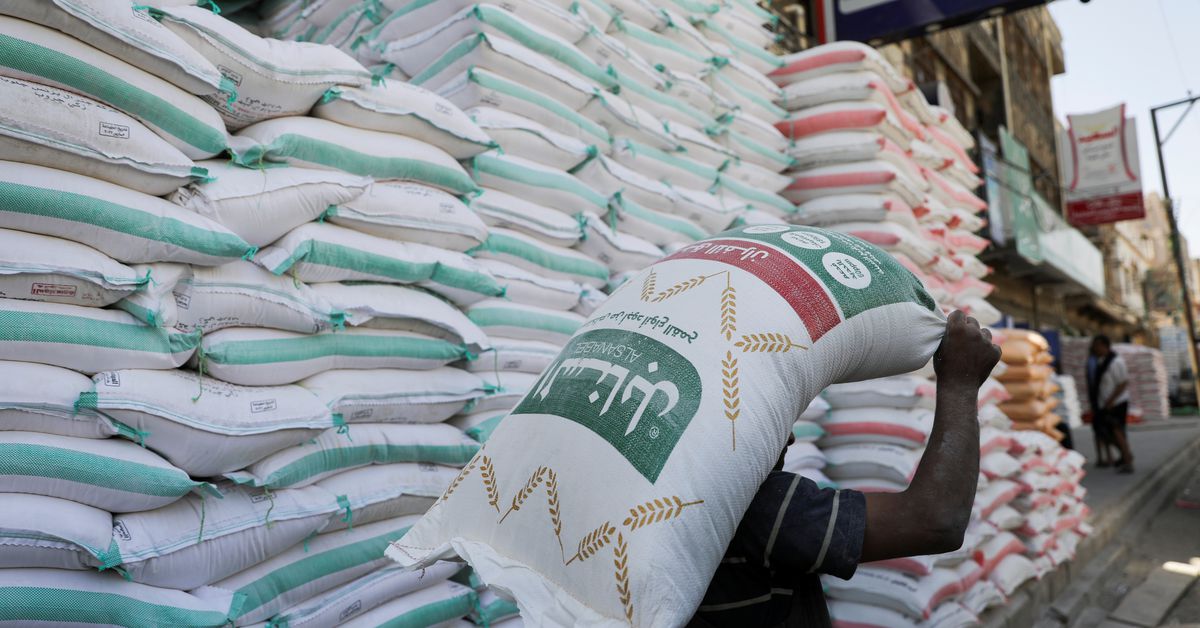Yemen has enough wheat for two-and-a-half months, document shows

A worker carries a sack of wheat flour outside a store in Sanaa, Yemen May 17, 2022. REUTERS/Khaled Abdullah
EN, Aug 10 (Reuters) – Yemen has secured enough wheat to cover two-and-a-half months of consumption, a commerce ministry document dated Aug. 4 showed, as global disruptions and local currency instability risk deepening the war-torn country’s hunger crisis.
A review by the internationally recognised government in Aden showed 176,400 tonnes of wheat available – 70,400 stockpiled and 106,000 booked for August/September delivery – according to the document.
This is in addition to 32,300 tonnes of wheat available from the United Nations, which feeds some 13 million people a month in Yemen, the document showed.
Register now for FREE unlimited access to Reuters.com Register
Yemen is grappling with a dire humanitarian crisis that has left millions hungry in the seven-year conflict that divided the country and wrecked the economy. Yemen imports 90% of its food, and 45% of its wheat needs came from Ukraine and Russia.
HSA Group, one of Yemen’s largest food conglomerates, said it had booked around 250,000 tonnes of wheat from Romania and France, sufficient to supply the market until mid-October, and that it is looking to secure a further 110,000 tonnes.
“Following the announcement of the Ukraine grain deal, we are currently looking to secure Ukrainian wheat for the Yemeni market if it remains affordable and accessible,” an HSA spokesperson, who declined to be named, told Reuters.
The United Nations and Turkey brokered a deal last month to restart exports from Ukraine, cut off since Russia’s February invasion, which could ease grain shortages that have driven up global prices. So far, however, there have not been any shipments of wheat. read more
Yemeni importers are unable to store significant amounts of wheat due to infrastructure limitations at Yemen ports and the country’s limited storage capacity, the HSA spokesperson said, and therefore the firm books new shipments every 2-3 weeks depending on availability and global prices.
Another issue facing importers is Yemen’s foreign reserves shortage and a serious devaluation of the currency in some parts of the country, where food price inflation has soared.
The Aden-based central bank has put in place an auction mechanism to ease access to foreign currency, but no import financing mechanism is currently in place to support the market.
Register now for FREE unlimited access to Reuters.com Register
Reporting by Mohammed Alghobari in Aden and Ghaida Ghantous in Dubai Editing by Mark Potter
Our Standards: The Thomson Reuters Trust Principles.






